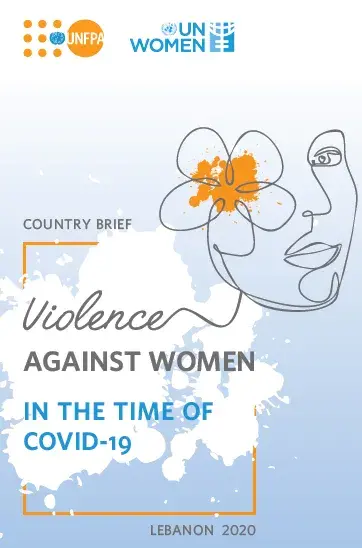In May 2020, the United Nations Entity for Gender Equality and Women’s Empowerment (UN Women), with support from the United Nations Population fund (UNFPA), undertook primary data collection around issues of violence against women (VAW) during the COVID-19 in Lebanon. The results outline increased concerns for safety, both inside and outside the home, as a result of the pandemic, with women reporting increased risks to domestic violence and attack by outsiders. Concerns around increased risk of domestic violence were the most significant for women in households of 5 members or more, women that are divorced, separated or widowed, and for women living in camp settings. Secondary trauma, specifically, the witnessing of violence against women, was reported by both male and female respondents, though was more clearly expressed by women. Online harassment is increasing throughout the pandemic, exposing more women than men to violence through social media and other internet forums. Camp settings – undefined as to the nationality of those living in them –seem to be the most challenging place to be a woman in Lebanon right now – with more than half reporting a lack of safety in their own home, and all, male and females, fearing attack by outsiders.
The majority of respondents agreed that women are at increased risk of violence as a result of the COVID-19 pandemic and believed tackling this to be a priority in which they were willing to engage in preventative actions. However, there still remain pockets of society, including youth aged 18-24, that were more reticent to acknowledge the severity of violence against women as a result of the pandemic and who stated an unwillingness to contribute toward it’s prevention.



